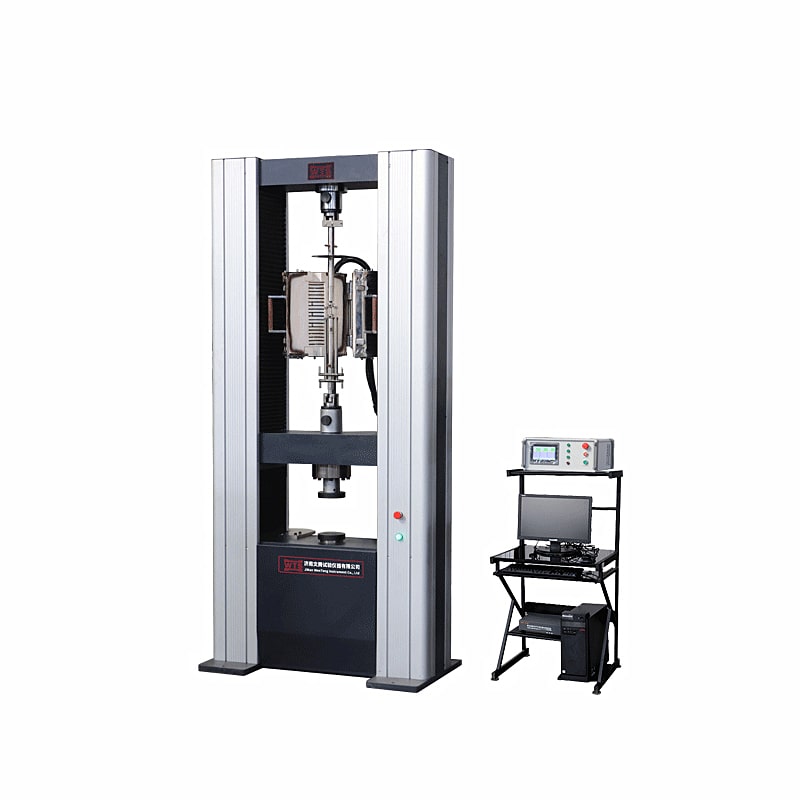When we hear the word Universal Tensile Machine, it may sound like something that only belongs in a laboratory or a factory. In reality, this machine plays a quiet but powerful role in shaping the world around us. From the steel in a skyscraper, the plastic in your smartphone case, to the fabric in your favorite running shoes, almost every product you touch has been tested for strength and durability—and chances are, a Universal Tensile Machine was involved in that process.
What is a Universal Tensile Machine?
A Universal Tensile Machine is a device that measures how materials behave when they are pulled apart. Engineers call this a tensile test. The machine grabs a sample of material—like a piece of metal, rubber, or fabric—then applies a steady pulling force until the material breaks or stretches to its limit.
The results help answer questions such as:
How strong is this material before it fails?
How much can it stretch without breaking?
Will it bend back into shape or stay deformed?
How Does a Universal Tensile Machine Work?
The working principle is simple to describe but powerful in practice:
Sample Preparation – A small piece of the material is cut to a standard size.
Clamping – The sample is placed between two strong grips inside the machine.
Loading – The Universal Tensile Machine applies a pulling force at a constant speed.
Measurement – The machine records both the amount of force applied and how much the material stretches.
Result Output – A graph called a stress-strain curve is generated.
Everyday Examples of Tensile Testing
You might wonder: why should anyone outside of engineering care about a Universal Tensile Machine? Let’s look at some simple examples:
Smartphone screens: Ever dropped your phone and wondered why some screens crack more easily than others? Before production, glass manufacturers test samples using tensile and bending tests.
Shoelaces: A shoelace that snaps too easily is frustrating. Textile companies use a Universal Tensile Machine to test the tensile strength of fabrics and fibers, ensuring durability.
Seat belts: Safety belts in cars must withstand extreme pulling forces during accidents. Tensile testing ensures they meet international safety standards.
Plastic bags: If a bag tears when you carry heavy groceries, it’s likely because the material wasn’t tested or didn’t pass tensile requirements.
Industrial Applications
Beyond daily life, the Universal Tensile Machine is indispensable across industries:
Metals and Alloys – Determining strength for construction steel, aerospace alloys, and automotive parts.
Plastics and Polymers – Ensuring plastic bottles, packaging films, and engineering plastics don’t fail under load.
Textiles and Fabrics – Measuring tear strength and stretch in clothing, upholstery, and industrial fabrics.
Rubber and Elastomers – Testing elasticity for tires, seals, and gaskets.
Construction Materials – Verifying the durability of wood, composites, and reinforcement bars.
Why Universal Tensile Machine Matters for Quality and Safety
The importance of a Universal Tensile Machine lies in its ability to guarantee quality, safety, and compliance. Manufacturers cannot risk releasing products that break too easily or fail under pressure.
For example:
A bridge made of steel that hasn’t been tensile-tested could collapse under stress.
A surgical glove that tears during use could put lives at risk.
An airplane component that fails mid-flight could cause disaster.
Benefits for Manufacturers and Consumers
For manufacturers, a Universal Tensile Machine offers several advantages:
Accurate and repeatable test results.
Compliance with global testing standards.
Improved product design and material selection.
Reduced risk of recalls and failures.
For consumers, the benefits are just as important, even if less visible:
Safer products.
Longer-lasting goods.
Better value for money.
Looking to the Future
As industries move toward lighter, stronger, and more sustainable materials, the role of the Universal Tensile Machine will only grow. New composites, 3D-printed materials, and advanced polymers all require rigorous tensile testing before they reach the market.
Whether it’s electric vehicles, renewable energy systems, or next-generation wearables, tensile testing ensures these innovations are safe and reliable.
Final Thoughts
The Universal Tensile Machine might not be something you see every day, but it’s working behind the scenes to make sure your products are strong, safe, and trustworthy. From the smallest thread in your clothes to the largest steel beam in a skyscraper, tensile testing shapes the materials that shape our world.
So, next time you tie your shoes, buckle your seatbelt, or swipe on your smartphone, remember: a Universal Tensile Machine probably had a hand in making sure it doesn’t fail you.










